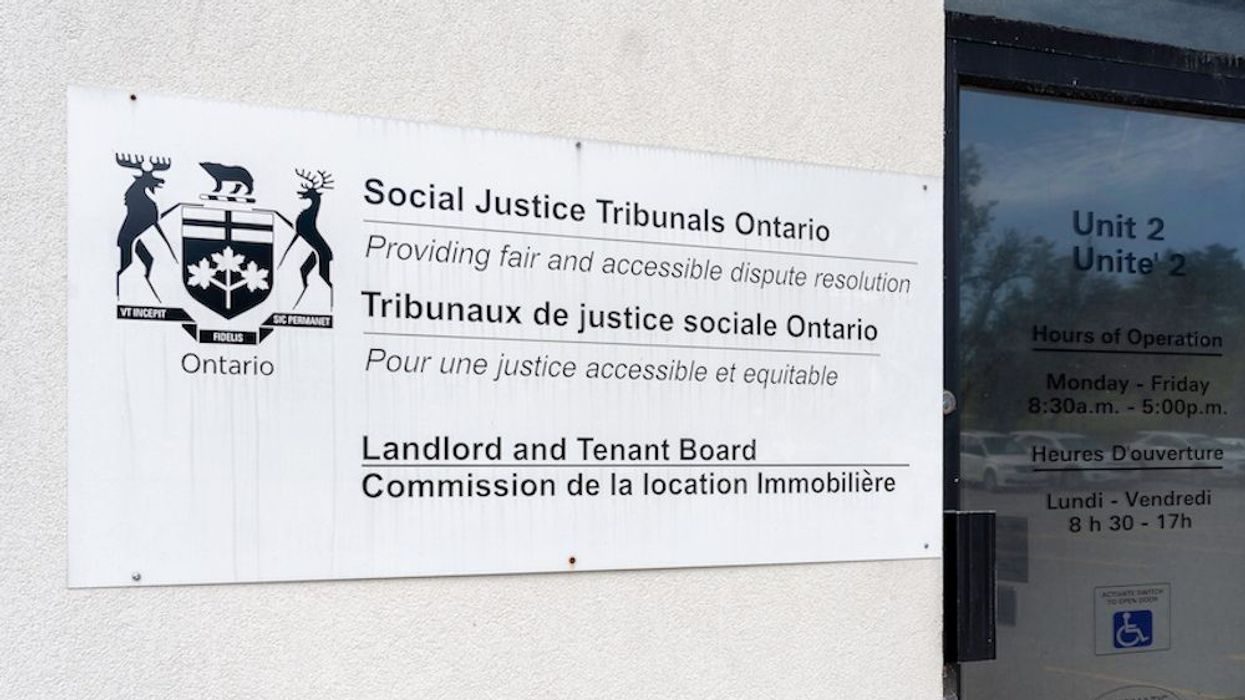Today’s rental market is often pegged as landlord-favorable, but a slew of recent media coverage suggests that it’s not a level playing field for corporate landlords and small-scale operations alike.
Since the rental market picked up in the spring, there have been reports of small-scale landlords plunging into debt and facing homelessness -- often citing tenants in arrears and refusing eviction — while they await remediation at Ontario’s Landlord and Tenant Board. Over at the LTB, a five-month moratorium on eviction hearings from March to August 2020 has created a debilitating case backlog, stretching wait times from 25 to 30 business days to around eight months.
“An eight-plus month wait for an L1 hearing serves as an incentive for non-payment of rent,” says Tony Irwin, President and CEO of the Federation of Rental-housing Providers of Ontario (FRPO). “Landlords with smaller unit counts do not have the same economics of scale to weather persistent non-payment or late payment of rent.”
He adds that this reality spells bad things for the province’s rental market, pushing rental providers out of the system at a time when demand for rental housing is at an all-time high.
The situation has been compounded by the LTB’s recent decision to “focus on previously adjourned matters such as older landlord and tenant applications, and case management hearings for Above Guideline Increase (AGI) applications” until the end of the year, according to a statement from Tribunals Ontario.
While the FRPO maintains that “the LTB case management system does not treat rental housing providers differently on the basis of portfolio size,” Varun Sriskanda, a Toronto-based property manager and member of the board of directors for Small Ownership Landlords of Ontario (SOLO), argues that prioritizing AGI applications unwittingly prioritizes the grievances of corporate landlords.
“Small landlords typically won't bring an AGI to the LTB,” says Sriskanda. In his experience, it’s simply not worthwhile for landlords operating just one or a handful of rental units to appeal to the LTB for rent increases -- particularly given the state of the board right now -- because the increase is usually nominal. “But what if you had an apartment building, like a skyscraper, which is 25 storeys, 15 units per story? If you do an AGI for each unit, it could be $9,000, $10,000 more a month. It's worth it at that point.”
To Sriskanda, the act of prioritizing rent increases over cases of rent arrears is indicative of a system breakdown -- “and it shows who has influence at the LTB," he adds.
Although SOLO exists to advocate for mom-and-pop housing providers, the organization is a non-profit with fewer resources and less sway than the FRPO and other associations that represent large-scale housing providers.
“I know for a fact that the bigger landlords have lobbyists. We used to have a lobbyist at SOLO, but we couldn't afford them after a while,” he says. Sriskanda says SOLO has to fight its way into Standing Committees, while organizations representing corporate landlords have lobbyists to get them a seat at the table. “That’s one of the reasons AGI applications are being heard over L1 applications.”
And the issue runs even deeper.
Through SOLO, Sriskanda helps mom-and-pop landlords vet prospective tenants and decipher the legitimacy of applications, and amid the rental market heat, he’s seeing more instances of fraudulent rental applications and an uptick in “professional tenants” -- someone who rents a property without the intention of paying rent.
“This is such a difficult housing market, so people are using the LTB backlog to their advantage,” he says. “They know that the backlog at the LTB is eight to 10 months on an L1 or L2 application, so even a non-paying tenant will be housed for eight to 10 months, which is more like one year when you’re waiting for the Sheriff eviction.
“I know a paralegal who had a heart-to-heart with their tenant after an LTB hearing. It took 13 months to get the tenant out. The tenant said, ‘if I do this with three landlords, three times, three years, that’s enough money for a downpayment on a condo.’”
Given the realities of today's rental market, Sriskanda urges small landlords to be extra rigorous when taking on tenants.
“Spend six months studying the market, studying the Residential Tenancies Act, and studying the process of vetting tenants, evicting tenants before you attempt to do it yourself,” he says.
Landlords should also insist on references, background checks, and credit checks, and should state that these things are non-negotiable in the rental ad. Sriskanda also cautions against using platforms like Facebook Marketplace and Kijiji, which tend to be unregulated and hotbeds for fraud.
For landlords utilizing the LTB, Sriskanda advises against tackling the process alone.
“Boards and tribunals, they were created for self-represented litigants… but that system has broken down. The RTA is no longer easy to read, it’s no longer easy to navigate, you need to be well-versed in it,” he says. “If you can, work with an experienced and qualified lawyer or paralegal who specializes in landlord cases.”





















